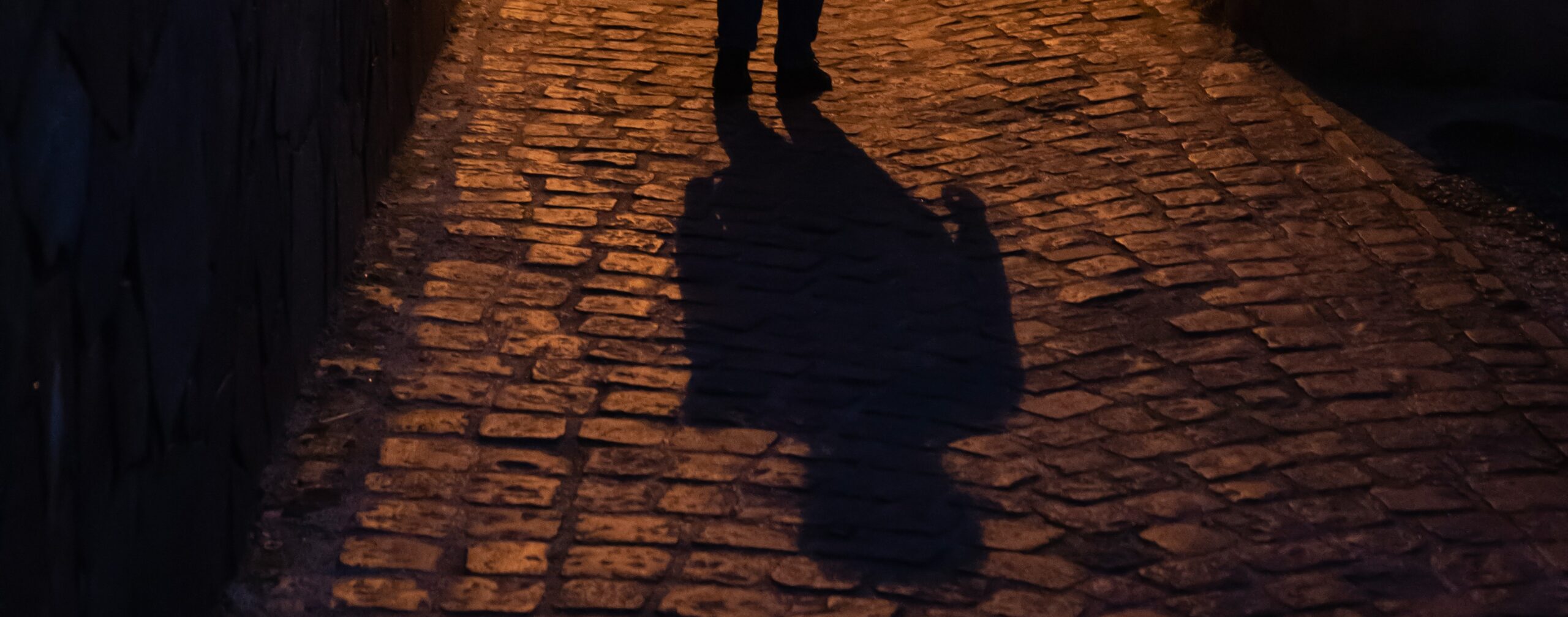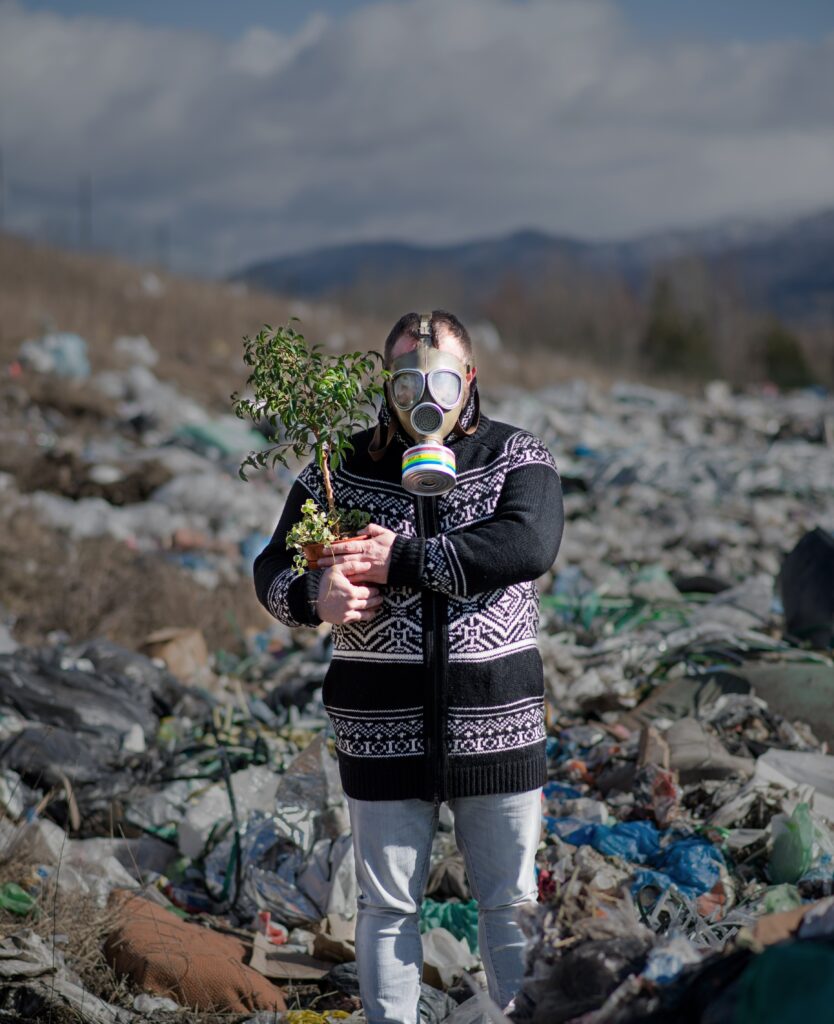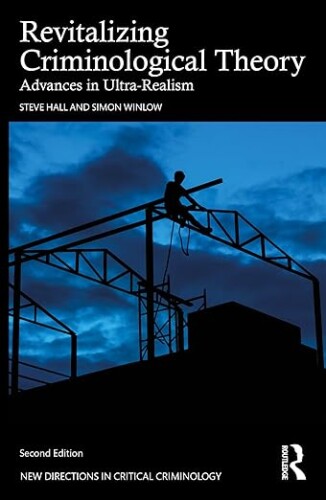
The Development of Ultra-Realism
Reclaiming Our Reality

NB the following text also appears on our Wikipedia page – there is no infringement of copyright on either site.
Ultra-realism is a new school of thought in western social science. Ultra-realists focus on the western way of life and its zemiological outcomes. Ultra-realism is a revisionist position constructed for the purposes of revisiting the research findings and fundamental domain assumptions of existing schools of thought to evaluate their validity and, where necessary, suggest further investigation using ethnographic research methods and advanced concepts.
Basic components of the framework
Ultra-realism’s initial empirical focus is on broad crime trends that show discernable shifts over time in various locales, regions and nations. Drawing upon the work of criminologists such as Robert K. Merton, Jock Young and Robert Reiner, they connect these trends to shifts in political economy, culture and subjectivity, investigating their forms and dynamic relations, which together create probabilistic contexts at the local, regional and national levels.
Early preparatory work undertaken before the establishment of the ultra-realist moniker in 2015 drew evidence from the New Deal period in the US, which between 1933 and 1937 correlated with a significant reduction of crime, violence and homicide.This contrasts with the crime explosions in the US and UK during the deindustrialization process of the 1980s. Ultra-realists analysed the decline in traditional crime from the mid-1990s in the context of advances in detection technology and surveillance and increased incarceration rates. They also researched the mutation of criminal markets, a process in which traditional crimes declined as detection and surveillance advanced while criminal markets expanded silently in the background and new forms of minimally reported and recorded crime appeared, much of it online.
Winlow’s sociological work on the displacement of traditional working-class identities and cultural pursuits by those promoted by mass-mediated consumer culture indicated that changes were taking place. His research on the drift into criminality added empirical and theoretical weight to Hall’s claim that the cultural context of criminality is the combined pacification and intensification of a competitive-individualist norm. Further research added detail to the historical intensification of the practices around this norm and explained how an associated subjectivity was normalised and pacified, leading to the emergence of foundational ultra-realist concepts such as the pseudo-pacification process, objectless anxiety and special liberty. Further ethnographic and theoretical work associated these socioeconomic, cultural and subjective shifts with corresponding changes in crime trends and the expansion of criminal markets.
The construction of a theoretical framework for a renewed realist analysis of trends in crime and harm led to the establishment of the ultra-realist project in 2015. Ultra-realists agreed with the left realist and early feminist position that critical criminology must take crime, harm and victims more seriously. They borrowed selected concepts from other realist schools of thought – for instance critical realism’s notions of depth structures and the causative impact of absence; speculative realism’s critique of correlationism and its emphasis on realist contingency and agency in the anthropecene era; Mark Fisher’s notion of ‘capitalist realism’, a culture that normalises and reproduces the cynical, ‘zero-sum’ subject frequently encountered by ultra-realist ethnographers in their research. The ubiquity of an indifferent attitude towards risking harm to others amongst respondents involved in crime and criminal markets prompted ultra-realism’s first move towards zemiology.
Ultra-realists drew upon Slavoj Žižek’s notion of fetishistic disavowal to formulate their concept of the ‘chosen unconscious’, which led to the early adoption of Adrian Johnston’s transcendental materialism as a basis for the ultra-realist framework. Further theoretical development was prompted by researchers’ empirical findings relating to subjectivity, particularly the clear distinction between expressive and instrumental forms of special liberty. The recognition of the use of criminal or harmful means of either remaining in or leaving specific situations led to the current reformulation of the ultra-realist framework, drawing upon the concepts of homeostasis, non-suffering, sacrifice, and existential difficulties in post-normal times.
Ultra-realists replaced the Lacanian notion of ‘the void’ in the psyche with the fundamental ‘molecular question’ – to stay or go – at the root of all organisms. This is a bodily demand for a primordial action-oriented metaphysics that only the affective system’s deep ‘mood’ emotions can translate and mediate. Because the molecular body understands only ‘non-suffering’ as its initial objective, the stay-go decision involves a calculation of sacrifice, which becomes mythologised to dramatize narratives and enhance the emotional credibility of any answers to the molecular question provided by experience, culture and ideology. The more persistent and committed criminals encountered by ultra-realist researchers throughout the social structure had accepted the cyncial belief that the ‘zero-sum’ world is natural and timeless. The onus is on individuals to stay with it and actively compete against others but avoid sacrifice at all costs by levering themselves up the hierarchy of non-suffering by any means possible, legal or otherwise.
Ultra-realists argue that criminology can make firmer contributions to the pragmatic political interventions required to stabilise economies, reduce sociosymbolic competition, transcend zero-sum subjectivity and restore ethics to the heart of economy, society, culture. In an attempt to lay the foundations for a theoretical framework that encompasses these issues, ultra-realists constructed the following new concepts specifically for criminological and zemiological research:
- The pseudo-pacification process. Hall’s concept, developed since the mid-1990s in theoretical works is an alternative to Norbert Elias’s concept of the ‘civilizing process’. Pseudo-pacification is a process that emerged in 12th century England in the wake of major cultural, legal and socioeconomic changes. The fundamental claim is that what is mistaken for ‘civilizing’ momentum is a fragile by-product of the displacement of physical violence as a normative means of ordering and disrupting social systems with rule-bound sociosymbolic competition acted out in commercial life and consumer culture. The relatively early replacement of violence with pseudo-pacified competitive individualism changed trends in crime and harm, accelerated urbanisation, social atomism and marketisation, increased consumer desires and helped Britain become the first fully industrialised nation.
- Special liberty. Hall’s concept of ‘special liberty’ is a socially unstructured sense of entitlement that defies the prohibition Kant placed on justifying means by ends. It is the culmination of ethically over-inflated but fundamentally cynical motivations and justifications constructed in the minds of those who are determined to achieve personal ends, whether instrumental or expressive, and have fetishistically disavowed the likelihood that their actions will cause harm to others and their environments. Special liberty operates at the boundary of the pseudo-pacification process’s normative structure and threatens its stability.
- Loss, trauma and nostalgia. Winlow’s work on the impact of the loss of identities during the process of rapid deindustrialization in the UK demonstrated how this existential trauma added another dimension to material, communal and social loss. As new identities were forged in consumer culture’s symbolic order, many respondents were also moved by a deep nostalgia that combines cynicism with a sense of marginalisation and loss of hope. Some individuals immersed themselves in criminal markets to compensate for this loss, achieve status and forge a simulated autonomous identity. Others also drifted into far-right politics, manifested in the UK riots of 2024.
- Objectless anxiety. Hall’s concept denotes the psychocultural end result of the operation of mass-mediated ideology in support of an existing way of life. Anxiety naturally lacks an object. By constantly ignoring, denying or reframing the real systemic causes of problems and preventing the ensuing anxiety from locating and understanding the appropriate object of fear on which people can act, the natural condition is artificially, systematically and indefinitely sustained. The concept has been deployed by criminologists researching deviant leisure, drug culture and policing.
- The assumption of harmlessness. Raymen’s concept was the product of a search into the historical background of special liberty in an attempt to explore the cultural context that underlies Western liberal societies’ understanding of harm. An unwritten rule in liberal thought insists that, where there is initial doubt, an activity should be should be assumed to be sufficiently harmless to practice before anyone should suspect it might be harmful. Therefore the onus is always on those who wish to prove it is harmful. This concept is one of ultra-realism’s theoretical contributions to zemiology.
Methods – ethnographic networks
Drawing upon earlier ethnographic work from Winlow, ultra-realists argue that criminological researchers are capable of capturing the details of the drivers behind crime and criminal markets by networking and generating qualitative data from different geographical locations and sections of the population. For example, projects undertaken to examine rioting in various locations of the UK and political protests around Europe revealed both differences and similarities in experiences, interpretations, motivations and outcomes. Networked ethnographers working in various spaces gathered data from observations and interviews to be analysed in the ultra-realist framework. .
Further reading
- Hall, S. and Winlow, S. (2025) Revitalizing Criminological Theory: Advances in Ultra-Realism. Abingdon: Routledge. Revitalizing Criminological Theory: Advances in Ultra-Realism
- Kotzé, J. and Lloyd, A. (2022) Making Sense of Ultra-Realism. Bingley: Emerald. Making Sense of Ultra-Realism
- Hall, S. and Winlow, S. (2025) Ultra-Realism: A Study Guide. UR Publications. Amazon.co.uk
- Hall, S. and Winlow, S. (2018) ‘Ultra-Realism’, in DeKeseredy, W. and Dragiewicz, M. (eds.) The Routledge Handbook of Critical Criminology, Abingdon: Routledge. Ultra-realism | 5 | v2 | Routledge Handbook of Critical Criminology |
- Hall, S. and Winlow, S. (2017) ‘Ultra-Realism’, in Brisman, A., Carrabine, E. and South, N. (eds.) The Routledge Companion to Criminological Theory and Concepts, Abingdon: Routledge. Ultra-realism | 89 | The Routledge Companion to Criminological Theory
- Hopkins-Burke, R. (2021) ‘Ultra-Realist Criminology’, in Hopkins-Burke, R. Contemporary Criminological Theory: Crime and Criminal Behaviour in the Age of Moral Uncertainty. Abingdon: Routledge. Ultra-Realist Criminology | 42 | v6 | An Introduction to Criminologica
- Winlow, S. and Hall, S. (2019) ‘Shock and Awe: On Progressive Minimalism and Retreatism, and the New Ultra-Realism’, Critical Criminology. Shock and Awe: On Progressive Minimalism and Retreatism, and the New Ultra-Realism
- Hall, S. (2015) ‘What is Criminology About? The study of harm, special liberty and pseudo-pacification in late-capitalism’s libidinal economy’, in Lippens, R. and Crewe, D. (eds.) What is Criminology About? Philosophical Reflections. Abingdon: Routledge. What is criminology about? | 10 | The study of harm, special liberty …
- Winlow, S. and Hall, S. (2016) ‘Realist Criminology and its Discontents’, International Journal for Crime, Justice and Social Democracy. Realist Criminology and its Discontents
